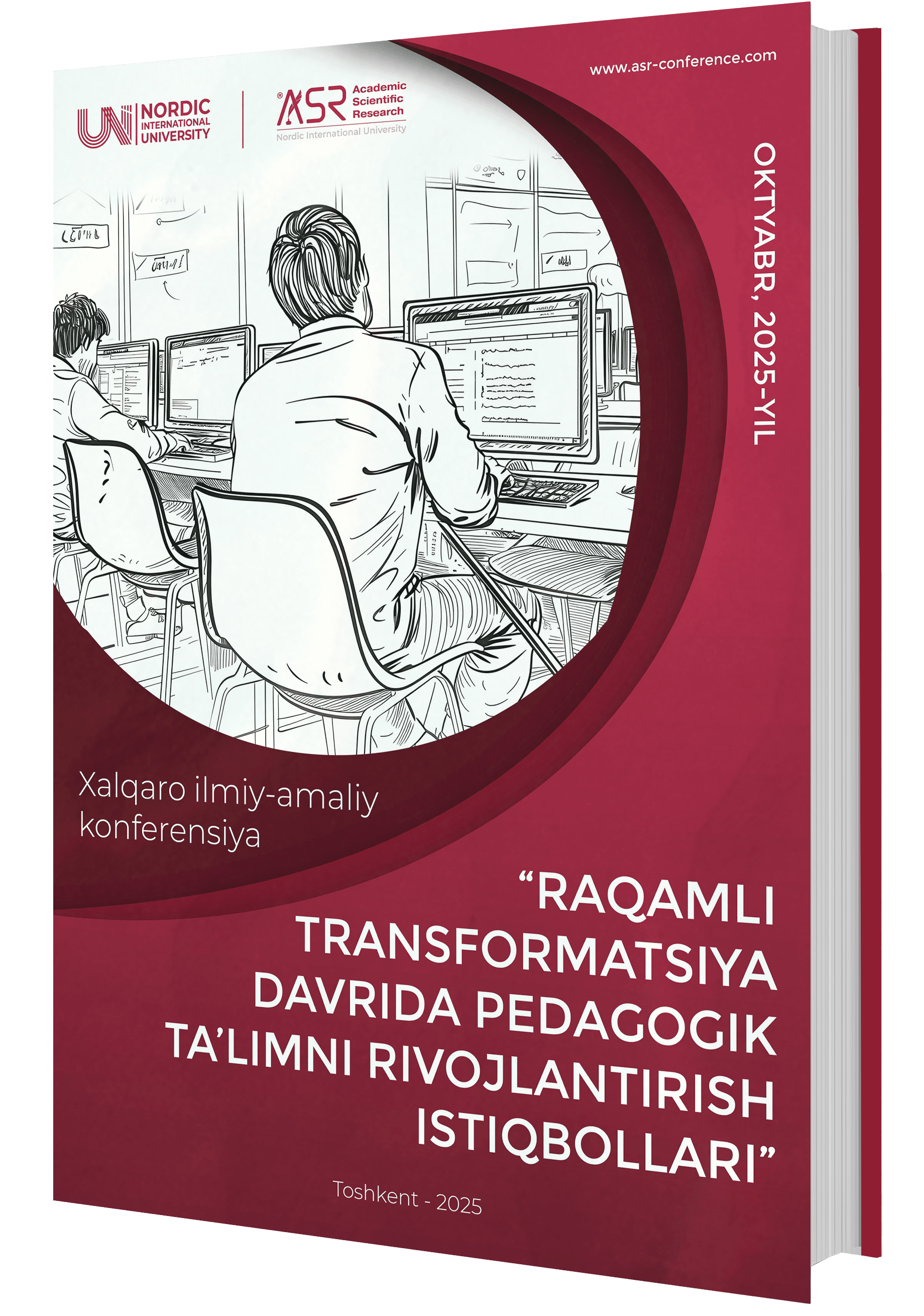THE IMPACT OF THE LIBRARY ENVIRONMENT ON STEM EDUCATION: METHODOLOGICAL FOUNDATIONS FOR THE EFFECTIVE USE OF RESOURCES
Аннотация
This article aims to explore the impact of the library environment on the quality of STEM (science, technology, engineering, mathematics) education and to propose methodological foundations for the effective use of resources. The study analyzes the transformation of the modern library’s traditional role, emphasizing its potential not only as a repository of information resources but also as an interactive learning and research space. The relevance of the research lies in the need to fully utilize the potential of library resources to enhance STEM education. By applying literature review, analytical, and systematization methods, the authors suggest ways to effectively integrate the library environment into the educational process. The findings reveal that the effectiveness of an educational environment built on the basis of the Resource-Methodological System (RMS) depends on the harmonious interaction of its four main components: resources, research opportunities, methodological support, and socio-cultural environment. The article proposes methodological mechanisms for developing students’ practical skills, research competence, and professional socialization through the use of library resources.
Библиографические ссылки
Тотикова, Г., Есалиев, A., Джумагулова, Г., Сабырханова, Г., & Турсынбаева, A. (2024). 2d және 3d модельдеу арқылы балаларды оқытуда steam тәсілінің психологиялық тиімділігін талдау. Вестник КазНПУ имени Абая. Серия: Психология, 81(4), стр-78.
Ескермесұлы, Ә., Илубаев, М., Оспанова, Ж., & Шонгалова, К. (2025). 3D модельдеу және робототехниканы пайдалана отырып, оқушылардың зерттеушілік дағдыларын қалыптастыру. 3i: intellect, idea, innovation-интеллект, идея, инновация, (1), 332-342.
Салтанова, Г., Багитова, К., Дашева, Г., Шангитова, М., & Гайсина, Э. (2024). Университет кітапханасының автоматтандырылған ақпараттық жүйесін әзірлеу және енгізу: ақпараттық ресурстарды басқаруды оңтайландыру және пайдаланушыларға тиімді қызмет көрсету. Известия НАН РК. Серия физико-математическая, (2), 269-284.
Shtivelband, A., Spahr, K. S., Jakubowski, R., LaConte, K., & Holland, A. (2019). Exploring “STEM-Readiness” in Public Libraries. Journal of Library Administration, 59(8), 854–872.
https://doi.org/10.1080/01930826.2019.1661744
Lalwani, L. N., & Allee, N. J. (2022). Preparing the Engineering Library of the Future: Changing Services, Structures, Staffing, and Resources - A Case Study. In ASEE Annual Conference and Exposition, Conference Proceedings. American Society for Engineering Education. https://doi.org/10.18260/1-2--40915
Serik, M., Nurgaliyeva, S., & Yerlanova, G. (2023). Integrating diverse robotic technologies in STEM education of Kazakhstan: a methodological approach and assessment in project-based learning. World Transactions on Engineering and Technology Education, 21(3), 1–6. https://doi.org/10.4108/eetsis.3088
Rusydiyah, E. F., Purwati, E., & Prabowo, A. (2020). How to use digital literacy as a learning resource for teacher candidates in Indonesia. Cakrawala Pendidikan, 39(2), 305–318. https://doi.org/10.21831/cp.v39i2.30551
Baryshev, R. A., Tsvetochkina, I. A., Babina, O. I., Kasyanchuk, E. N., & Manushkina, M. M. (2020). Transformation of university libraries during the digital era. Journal of Siberian Federal University - Humanities and Social Sciences, 13(7), 1073–1089. https://doi.org/10.17516/1997-1370-0627
Kato, A., Kisangiri, M., & Kaijage, S. (2021). A Review Development of Digital Library Resources at University Level. Education Research International, 2021, 1–13. https://doi.org/10.1155/2021/8883483
Aliyyah, R. R., Rasmitadila, Fauziah, S. P., Widyasari, Marini, A., & Ruhimat. (2024). Digital library: Lecturers’ perceptions of facilitating learning resources in the industrial era 4.0. Journal of Education and E-Learning Research, 11(1), 203–210. https://doi.org/10.20448/jeelr.v11i1.5425
Загрузки
Опубликован
Выпуск
Раздел
Лицензия
Copyright (c) 2025 S. Polatuly, Ye. Yedilbayev, B. Kurbanbekov, S. Abdurashidov

Это произведение доступно по лицензии Creative Commons «Attribution-NonCommercial» («Атрибуция — Некоммерческое использование») 4.0 Всемирная.
Условия лицензии
Эта работа доступна под лицензией Creative Commons Attribution-NonCommercial 4.0 International License. Чтобы просмотреть копию этой лицензии, посетите http://creativecommons.org/licenses/by-nc/4.0/ или отправьте письмо по адресу Creative Commons, PO Box 1866, Mountain View, CA 94042, США.
По этой лицензии вы можете:
Поделиться — копируйте и распространяйте материал на любом носителе и в любом формате.
Адаптируйте — делайте ремиксы, трансформируйте и дорабатывайте материал.
Лицензиар не может отозвать эти свободы, если вы соблюдаете условия лицензии. На следующих условиях:
Атрибуция. Вы должны указать соответствующую ссылку, предоставить ссылку на лицензию и указать, были ли внесены изменения. Вы можете сделать это любым разумным способом, но не таким образом, который бы предполагал, что лицензиар одобряет вас или ваше использование.
Некоммерческое использование — вы не имеете права использовать материал в коммерческих целях.
Никаких дополнительных ограничений. Вы не имеете права применять юридические условия или технологические меры, которые юридически запрещают другим делать все, что разрешено лицензией.





